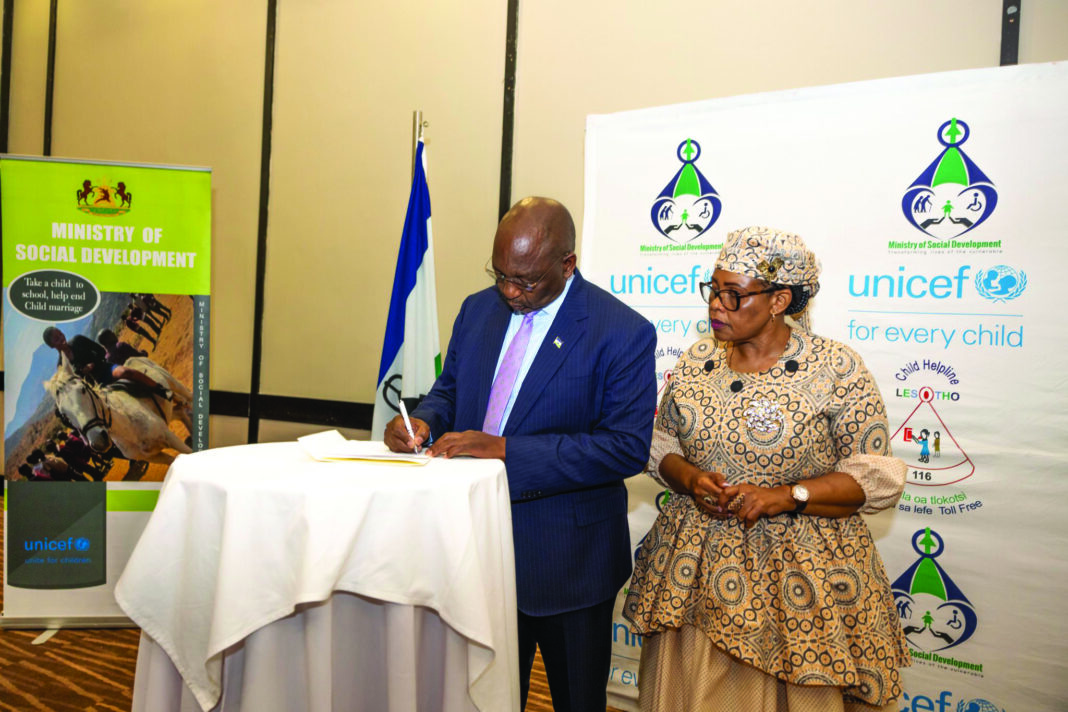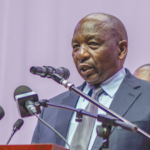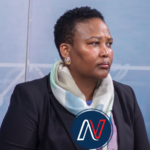Staff Reporter
The International Human Rights Lab (IHRL) and International Supportive Futures (ISF) have expressed full support for the Lesotho National Pledge to Eliminate Violence Against Children, which was launched by Prime Minister Ntsokoane Samuel Matekane last week.
In a statement yesterday, IHRL emphasised that this pledge is not just a policy announcement but a significant declaration of Lesotho’s collective commitment to safeguarding the rights and dignity of every child in the country.
“Violence against children is a grave injustice that tears at the fabric of our society. Our children, the future of Lesotho, deserve nothing less than to grow in an environment free from fear, where their safety is guaranteed and their potential fully realised,” the organisation stated.
IHRL further highlighted that by adopting this pledge, Lesotho has taken a crucial step toward ensuring a future where children’s rights are protected and nurtured, empowering them to become the nation’s next generation of leaders.
The organisation applauded the initiative and expressed its readiness to collaborate with the government, civil society, and stakeholders to ensure the pledge’s successful implementation.
“We must now focus on building and strengthening child protection systems, fostering unity, and embracing our collective responsibility as a nation,” the statement added.
The statement also emphasised the importance of international partnerships: “It takes a village to raise a child—and in this mission, our village has no borders. We acknowledge and appreciate the invaluable support of our foreign partners, whose unwavering commitment to the protection of children’s rights has greatly contributed to this mission.”
Matekane’s launch of the pledge on October 18, 2024, marked a significant moment ahead of the first-ever Global Ministerial Conference on Ending Violence Against Children, scheduled for November 7-8, 2024, in Bogotá, Colombia.
During the event, Minister of Social Development, Gender, Youth, and Sports, Pitso Lesaoana, stressed the critical importance of the pledge and outlined the Ministry’s role in coordinating child protection policies under the Children’s Protection and Welfare Act of 2011.
Lesaoana acknowledged that, while progress has been made, much more remains to be done to combat violence against children, which continues to manifest in emotional, physical, and sexual abuse.
“This pledge serves as a reminder that our commitment must translate into decisive action to protect them,” he stated.
UNICEF Lesotho also endorsed the pledge, saying it reaffirms Lesotho’s commitment to comprehensive child protection systems.
The pledge calls for unified efforts to protect marginalised and vulnerable children, including those with disabilities, orphans, victims of child labour and early marriage, children in conflict with the law, and homeless children in both rural and urban areas.
It stresses the need to safeguard children in all environments, including homes, schools, communities, and online.
Matekane emphasised the government’s determination, calling violence against children an enemy of the state.
“The Kingdom of Lesotho calls on all its partners, friends, and the nation at large to support efforts in protecting children in every space they occupy,” he urged, stressing the importance of collective action to create a safe and supportive environment for children to thrive.
IHRL echoed these sentiments in its statement yesterday and asserted that the protection of children is not just a national priority but a global one. “Together, as Basotho and as part of the wider international community, we can build a future where every child is safe, empowered, and free to thrive.”
According to the United States Department of Labour’s 2023 report on the worst forms of child labour in Lesotho, the country made minimal progress in eliminating child labour last year.
The report noted that while a National Action Plan on the Elimination of Child Labour had been drafted, gaps remain, including the disparity between Lesotho’s compulsory education age (13) and the minimum age for work (15), leaving children vulnerable to exploitation.
The report also highlighted the lack of effective coordination mechanisms and the absence of labour inspections in high-risk sectors, particularly the informal sector where child labour is prevalent.
Summary
- In a statement yesterday, IHRL emphasised that this pledge is not just a policy announcement but a significant declaration of Lesotho’s collective commitment to safeguarding the rights and dignity of every child in the country.
- The pledge calls for unified efforts to protect marginalised and vulnerable children, including those with disabilities, orphans, victims of child labour and early marriage, children in conflict with the law, and homeless children in both rural and urban areas.
- “The Kingdom of Lesotho calls on all its partners, friends, and the nation at large to support efforts in protecting children in every space they occupy,” he urged, stressing the importance of collective action to create a safe and supportive environment for children to thrive.

Your Trusted Source for News and Insights in Lesotho!
At Newsday Media, we are passionate about delivering accurate, timely, and engaging news and multimedia content to our diverse audience. Founded with the vision of revolutionizing the media landscape in Lesotho, we have grown into a leading hybrid media company that blends traditional journalism with innovative digital platforms.










